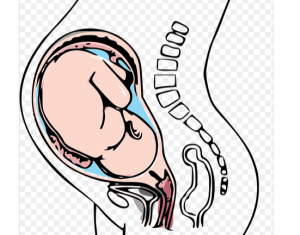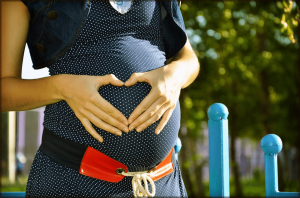
As a soon-to-be parent, whether having their first child or their fifth, the desire is always to experience the healthiest pregnancy possible. However, health concerns like high blood pressure, also known as hypertension, can pose significant risks.
Hypertension increases the risk of developing certain pregnancy complications, especially if these issues are left untreated.
Understanding the relationship between high blood pressure and fetal health will help keep both mother and child as safe as possible during pregnancy.
Complications of High Blood Pressure During Pregnancy
High blood pressure can have many complications during pregnancy for both mother and child.
If the mother has a previous existence of hypertension prior to pregnancy or develops it during the pregnancy, it’s important to pay close attention to blood pressure and symptoms. It’s best to keep all regular appointments with the obstetrician such that they can monitor the health of mother and child very closely.
Gestational Hypertension
Blood pressure may rise during pregnancy, especially after 20 weeks. This is known as gestational hypertension.
People with gestational hypertension typically don’t experience any of the organ damage that may result from long-term hypertension. The reason is that gestational hypertension is usually temporary.
Gestational hypertension may simply improve, but it does have the risk of developing into preeclampsia.
Preeclampsia
Preeclampsia is a serious complication that can develop in pregnant mothers who have gestational hypertension. An increased protein level in the urine is a typical indicator of preeclampsia.
In the condition of preeclampsia, high blood pressure has progressed to the point where it’s doing damage to vital organs like your kidneys, liver, and brain. This damage can be reversed, but only through careful management and the use of high blood pressure treatment methods.
If untreated, preeclampsia can progress to a more dangerous condition, eclampsia.
Eclampsia
During eclampsia, damaged blood vessels prevent proper blood flow throughout the body. This can lead to conditions affecting the brain, such as seizure, coma, or even stroke.
Eclampsia is a very serious condition that endangers both the mother and baby. Medical treatment is life-saving.
That said, not every case of preeclampsia develops into eclampsia. Signs of eclampsia include abnormally high blood pressure spikes, abdominal pain, headaches, and visual changes. The chances of developing this condition are increased in pregnant patients younger than age 18 or older than age 35, in twin (or other multiple) pregnancies, or in people with diabetes.

Risks To The Baby
Hypertension doesn’t just pose a health risk for the mother. It can also interfere with the natural healthy development of the baby.
The risks to the baby’s health include low birth weight, placental abruption, and preterm delivery.
Low Birth Weight
More severe and long-lasting cases of high blood pressure can result in the baby being born a few pounds underweight, even if they are born right on time.
This is because a restricted blood flow can limit the amount of blood reaching the placenta, which, in turn, means the baby isn’t getting all the nutrients that would normally be available to them.
They may also have slowed growth because the lack of nutrients leads to slower fetal development. This is a bigger problem during the earliest stages of development when most cell replication is occurring.
Placental Abruption
During pregnancy, the placenta is attached to the uterine wall. Very high blood pressure can cause a placental abruption, which is when the placenta prematurely detaches from the uterine wall. Abruption may be partial with only minor bleeding, or it may involve the placenta separating from the uterus entirely.
This is a very rare circumstance, but if it does happen, it means that the baby is no longer getting the nutrients and oxygen they need. This is an emergent condition requiring immediate delivery of the baby.
Preterm Delivery
Premature birth may occur as a direct result of preeclampsia, or labor may need to be induced earlier than anticipated due to other complications during pregnancy related to high blood pressure.
Premature babies may need to spend additional time in the hospital, and they have a higher risk of developing some health complications. However, many premature babies also enjoy a long and healthy life with no noticeable health issues after a few months.
Pregnancy-Friendly High Blood Pressure Treatment

Some blood pressure medications are okay to take while pregnant, but others may not be. The mother should read the labels and be aware of all health warnings for any medications that are taken during pregnancy, and discuss these risks with the obstetrician.
Of course, natural treatment methods like adjusting your diet and exercise routine may be helpful in the case of gestational hypertension, but these methods should be discussed with the obstetrician.
Final Thoughts
If high blood pressure is a concern after becoming pregnant, don’t delay in seeking medical care. It’s best to get the safest care possible during pregnancy.
